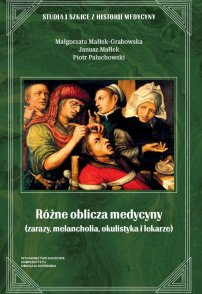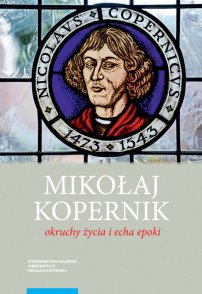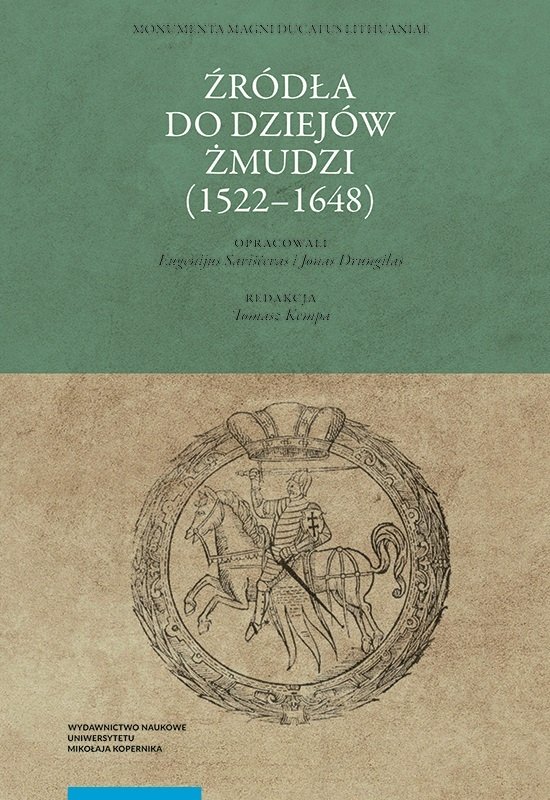Historyk, pracownik Instytutu Historii i Archiwistyki Uniwersytetu Mikołaja Kopernika w Toruniu, badacz dziejów Wielkiego Księstwa Litewskiego i ziem ruskich Korony w epoce nowożytnej, szczególnie dużo miejsca poświęca badaniom historii stosunków wyznaniowych. Opublikował przeszło 200 publikacji naukowych, w tym blisko 130 artykułów oraz monografie: Konstanty Wasyl Ostrogski (ok. 1524/1525–1608), wojewoda kijowski i marszałek ziemi wołyńskiej, Toruń 1997 (wydanie w języku ukraińskim – Konstantynów 2009); Mikołaj Krzysztof Radziwiłł Sierotka (1549–1616), wojewoda wileński, Warszawa 2000 (wydanie rozszerzone w języku białoruskim – Mir 2016); Dzieje rodu Ostrogskich, Toruń 2002; Wobec kontrreformacji. Protestanci i prawosławni w obronie swobód wyznaniowych w Rzeczypospolitej w końcu XVI i w pierwszej połowie XVII wieku, Toruń 2007; Konflikty wyznaniowe w Wilnie od początku reformacji do końca XVII wieku, Toruń 2016; Konstanty Wasyl Ostrogski (1526-1608) – przywódca społeczności prawosławnej w Rzeczypospolitej, Toruń 2023.
Źródła do dziejów Żmudzi (1522–1648)
Opracowali – Eugenijus Saviščevas i Jonas Drungilas
Redakcja – Tomasz Kempa
Podczas przygotowywania do druku przed dziesięcioma laty zbioru przywilejów nadanych Żmudzi zrodził się pomysł uzupełnienia go o dokumenty, które dostarczą więcej informacji o specyfice historii politycznej i społecznej tego regionu. Jednak poszukiwanie i opracowanie tego rodzaju źródeł wymagały znacznie więcej czasu, dlatego wówczas trzeba było zrezygnować z tego pomysłu. Możliwość przeprowadzenia kwerendy w tym właśnie kierunku pojawiła się po uzyskaniu środków z Narodowego Programu Rozwoju Humanistyki, przyznanych przez Ministerstwo Nauki i Szkolnictwa Wyższego Rzeczypospolitej Polskiej, w ramach projektu badawczego koordynowanego przez prof. Tomasza Kempę z Uniwersytetu Mikołaja Kopernika w Toruniu.
Zgodnie z założeniami w prezentowanym tomie zebrano źródła ukazujące rozwój polityczny i społeczny Żmudzi oraz specyfikę i odmienność tej krainy, które obok publikacji przywilejów ziemskich mogą stać się swoistym przewodnikiem przedstawiającym różne aspekty życia publicznego ziemi żmudzkiej w okresie wczesnonowożytnym.
Do publikacji zostały wybrane dokumenty z lat 1522–1648, spisane w języku ruskim i polskim. Pierwsza data wynika z najwcześniejszego odnalezionego dokumentu wpisującego się w przyjęte przez wydawców założenia. Rok 1648 wybrano jako datę zmiany władców, zapowiadającą jednocześnie ważne przemiany w Wielkim Księstwie Litewskim w związku z rozpoczynającym się powstaniem Chmielnickiego.
Edycja zawiera głównie publiczne dokumenty związane z rządami na Żmudzi. Co prawda wydawcy zdecydowali się umieścić w publikacji kilka przywilejów nadanych poszczególnym osobom, jednak ich treść ma wyraźny charakter publiczny, a przede wszystkim ukazuje specyfikę tej litewskiej prowincji. Odnosi się bowiem do urzędów funkcjonujących jedynie na Żmudzi bądź do sposobu ich nadawania przez hospodara. Ponadto w zbiorze zostało zamieszczonych kilka listów, w których m.in. można znaleźć informacje ukazujące przebieg elekcji i nominacji na starostwo żmudzkie lub przedstawiające sytuację wyznaniową w tej krainie. Część z nich została opublikowana jedynie we fragmentach, gdyż pozostałe ich partie nie dotyczą spraw żmudzkich. Główny trzon dokumentów zamieszczonych w publikacji można uznać wszakże za źródła do historii żmudzkiego parlamentaryzmu. Ukazują one zasadniczo rozwój tradycji komunikacji politycznej między regionem a centrum państwa (Wielkim Księciem Litewskim i miejscowymi urzędnikami oraz stanem szlacheckim). Z prowincji do kancelarii wielkiego księcia były wysyłane skargi, prośby, uchwały zgromadzeń szlacheckich. Z kolei z kancelarii wielkoksiążęcej na Żmudź trafiały różne nakazy, przywileje dla mianowanych urzędników, regulaminy dotyczące zarządzania, wyroki sądu książęcego etc. Większość tych dokumentów ma istotne znaczenie, gdyż ich wymierne skutki wywarły określony wpływ na zarządzanie prowincją, a także na jej życie społeczno-polityczne. Zbiór zawiera też zachowane instrukcje sejmikowe z terenu Żmudzi i inne dokumenty wiążące się z funkcjonowaniem tutejszych sejmików. Włączono do niego wszystkie znane wydawcom instrukcje sejmiku żmudzkiego z okresu do 1648 r.
Ten years ago, during the preparation for printing of the collection of privileges granted to Samogitia, the idea was born to supplement it with documents providing more information about historical and social politics of this region. However, the search for this kind of sources and the edition of them required much more time, and that is why this idea was abandoned. An opportunity to conduct research in this direction arose after receiving funds from the National Programme for the Development of Human Sciences, granted by the Ministry of Science and Higher Education of the Republic of Poland, as part of a research project coordinated by prof. Tomasz Kempa from Nicolaus Copernicus University in Toruń.
In accordance with the assumptions, in the presented volume one can find a collection of sources depicting the political and social development of Samogitia as well as the specifics and distinctiveness of this region, which – together with the publication of nobility privileges – can become a unique guidebook presenting different aspects of public life on Samogitian lands in the early modern period.
Documents from the period 1522–1648, written in Ruthenian and Polish, have been chosen for this publication. The former date results from the earliest of the discovered documents, which is in line with the publishers’ assumptions. 1648 was chosen as the date of the change of rulers, which simultaneously promised important transformations in the Grand Duchy of Lithuania in relation to the beginning of the Khmelnytsky Uprising.
The edition mainly consists of public documents related to the government in Samogitia. In fact, the publishers decided to include in the publication several examples of privileges granted to individual people. However, their content has a clearly public nature and, above all, shows the specificity of this Lithuanian province. It refers to offices functioning only in Samogitia or to the method of granting them by the hospodar. In addition, the collection includes several letters in which, among others, one can find information showing the course of elections and nominations for the Samogitian starosty or presenting the denominational situation in this land. Some of them were published only in fragments because the remaining parts do not concern Samogitian affairs. The main body of documents included in the publication can be considered as sources for the history of Samogitian parliamentarism. They basically show the development of the tradition of political communication between the region and the center of the state (the Grand Duke of Lithuania and local officials and the nobility). Complaints, requests, and resolutions from noble assemblies were sent from the provinces to the grand duke's office. In turn, various orders, privileges for appointed officials, management regulations, judgments of the princely court, etc. were sent to Samogitia from the Grand Ducal Chancellery. Most of these documents are important because their measurable effects have had a specific impact on the management of the province, as well as on its socio-political life. The collection also contains preserved assembly instructions from the area of Samogitia and other documents related to the functioning of local assemblies. All instructions of the Samogitian sejmik from the period up to 1648 known to the publishers were included.
WSTĘP
WYKAZ SKRÓTÓW
ŹRÓDŁA DO DZIEJÓW ŻMUDZI (1522–1648). SPIS DOKUMENTÓW
1. Wyrok Zygmunta I w sprawie kasztelana wileńskiego i starosty żmudzkiego Stanisława Janowicza Kieżgajły z ciwunami i szlachtą ziemi żmudzkiej dotyczący prawa podawania ciwuństw i dworów na Żmudzi
2. List Zygmunta I do kasztelana wileńskiego i starosty żmudzkiego Stanisława Kieżgajły dotyczący prawa szlachty żmudzkiej do korzystania z pożytków leśnych i rzecznych
3. Dwa listy Zygmunta I do kasztelana wileńskiego i starosty żmudzkiego Stanisława Kieżgajły w odpowiedzi na skargi szlachty żmudzkiej na postępowanie Kieżgajły, w związku z wprowadzaniem przez niego różnych zakazów, a także do skarżących
4. List Zygmunta I do kasztelana wileńskiego i starosty żmudzkiego Stanisława Kieżgajły w związku z nadaniem włości szawelskiej biskupowi wileńskiemu, księciu Janowi
5. Poselstwo od Zygmunta I do kaszelana wileńskiego i starosty żmudzkiego Stanisława Kieżgajły oraz do ciwunów żmudzkich w związku z nadaniem włości szawelskiej biskupowi wileńskiemu, księciu Janowi
6. Przywilej dla Stanisława StanisławowiczaKieżgajły na starostwo żmudzkie
7. List Zygmunta I do ciwunów żmudzkich informujący o posłaniu na Żmudź urzędników hospodarskich, mających dokonać popisu majętności szlacheckich
8. Ustawa Zygmunta I dotycząca dzierżaw i powinności poddanych hospodarskich na Żmudzi
9. Zygmunt I w w sprawie wybierania poborów kunicznych z dóbr żmudzkich
10. List Zygmunta I do dzierżawców dwórów hospodarskich na Żmudzi z informacją o ustanowieniu pisarzem w ziemi żmudzkiej Andrzeja Mackowicza, który ma dołożyć starań, by majątki hospodarskie przynosiły jak największe dochody
11. Zygmunt I do ciwunów żmudzkich w sprawie wybierania dochodów i skarg poddanych z dóbr hospodarskich w związku z powołaniem na pisarza ziemi żmudzkiej Andrzeja Mackowicza
12. List Zygmunta I do mytników kowieńskich o poruczeniu pieczy nad wszystkimi puszczami żmudzkimi Andrzejowi Mackowiczowi
13. List Zygmunta I do ciwunów żmudzkich z informacją o ustanowieniu pisarzem w ziemi żmudzkiej Bogdana Mitkowicza
14. Sprawa ciwunów żmudzkich Jakuba Juszkowicza [Szukowicza] i ŁawrynaSzukowicza ze Stanisławem Orwidem o gubernatorstwo żmudzkie
15. Zygmunt I na prośby urzędników i szlachty żmudzkiej zgadza się na oddanie godności starosty żmudzkiego wojewodzie połockiemu Piotrowi Stanisławowiczowi Kiszce
16. Przywilej dla Piotra Stanisławowicza Kiszki na starostwo żmudzkie
17. Zygmunt I do szlachty żmudzkiej z powiadomieniem o czasowej nominacji na hetmana ziemi żmudzkiej (sprawcy wojska żmudzkiego) ciwuna pojurskiego i korszewskiego Adama Bejnarowicza (Bejnartowicza)
18. List Zygmunta I do sprawcy wojska żmudzkiego Adama Hanusowicza Bejnarowicza oraz całej szlachty żmudzkiej z nakazem stawienia się na popis pod rozkazy hetmana najwyższego litewskiego Jerzego Radziwiłła
19. Zygmunt I do urzędników i szlachty żmudzkiej, by w sprawach dotyczących Żmudzi udawała się do prywatnej siedziby starosty żmudzkiego Jana Mikołajewicza Radziwiłła w Kiejdanach
20. Zygmunt I do szlachty żmudzkiej z zawiadomieniem, iż polecił staroście żmudzkiemu Janowi Radziwiłłowi, aby zapanował nad porządkiem i bezpieczeństwem w tej prowincji, a także ukarał winnych kradzieży, rozbojów i zabójstw
21. List Zygmunta I do starosty żmudzkiego Jana Radziwiłła w odpowiedzi na skargi szlachty żmudzkiej dotyczące wykorzystywania ich w działaniach wywiadowczych w czasie konfliktu z Moskwą
22. Zygmunt I do dworzanina hospodarskiego Mikołaja Narbuta i ciwunów żmudzkich w sprawie wprowadzenia do obiegu nowej monety
23. Zalecenia Zygmunta I dane Kmicie Kuncewiczowi, który ma wpłynąć na zakończenie buntów chłopskich na Żmudzi
24. Ustawa uściślająca powinności poddanych hospodarskich na Żmudzi
25. Dwa listy Zygmunta I do mytnika kowieńskiego Iwana Kuncewicza w sprawie wyznaczenia dróg oraz pobierania myta od kupców zmierzających ze Żmudzi do Prus
26. Przywilej Zygmunta I dla Macieja Wojciechowicza Kłoczki na starostwo żmudzkie
27. Prośby bojarów żmudzkich i odpowiedzi na nie Zygmunta I na sejmie wileńskim 1542 r.
28. Zygmunt I do kanonika wileńskiego, plebana kowieńskiego, kiernowskiego i pozwolskiego Erazma Ostafiejewicza w sprawie prawa szlachty żmudzkiej do wstępu do puszcz hospodarskich
29. Starosta żmudzki i kasztelan trocki Hieronim Chodkiewicz do ciwuna berżanskiego Sebastiana Mikołajewicza Kęstorta w sprawie krzywd, jakich doświadcza od Kęstorta kanonik żmudzki i pleban łuknicki Stefan
30. Próśby szlachty żmudzkiej i odpowiedzi na nie Zygmunta Augusta na sejmie wileńskim 1551 r.
31. Zygmunt August do starosty żmudzkiego Hieronima Chodkiewicza w sprawie posłania mierników włócznych do majątków hospodarskich na Żmudzi
32. Prośby szlachty żmudzkiej i odpowiedzi na nie Zygmunta Augusta na sejmie wileńskim 1554 r.
33. Prośby szlachty żmudzkiej i odpowiedzi na nie Zygmunta Augusta na sejmie wileńskim 1559 r.
34. Prośby szlachty żmudzkiej i odpowiedzi na nie Zygmunta Augusta na sejmie wileńskim 1563 r.
35. List Zygmunta Augusta do marszałka dworzanina hospodarskiego i ciwuna ejragolskiego Mikołaja Wołodkiewiczaz zawiadomieniem o sejmie polsko-litewskim w Łomży, na który mają udać się litewscy posłowie
36. Ciwunowie w imieniu całej szlachty żmudzkiej zawiadamiają pismem okrężnym o decyzjach Zygmunta Augusta w sprawie wyboru urzędników sądów ziemskich i tymczasowym funkcjonowaniu starego systemu sądownictwa na Żmudzi
37.Proźby szlachty żmudzkiej i odpowiedzi na nie Zygmunta Augusta
38. Prośby szlachty żmudzkiej i odpowiedzi na nie Zygmunta Augusta na sejmie wileńskim 1566 r.
39. Postanowienie Zygmunta Augusta o odłożeniu rozstrzygnięcia sporu o kolejność wotowania na sejmie między posłami wołyńskimi a żmudzkimi
40. Zygmunt August zawiadamia starostę żmudzkiego Jana Hieronimowicza Chodkiewicza o oddaniu ciwuństwa gondyńskiego stolnikowi litewskiemu Mikołajowi Dorohostajskiemu do czasu zwrotu jemu długu w kwocie 2 tys. kop groszy litewskich
41. Prośby szlachty żmudzkiej i odpowiedzi na nie Zygmunta Augusta na sejmie brzeskim w 1566 r.
42. Postanowienie Zygmunta Augusta na sejmie w Lublinie o odłożeniu rozstrzygnięcia sporu o kolejność wotowania między posłami wołyńskimi a żmudzkimi w czasie przyszłych sejmów walnych
43. List Zygmunta Augusta do starosty żmudzkiego Jana Hieronimowicza Chodkiewicza w sprawie wyboru posłów ze Żmudzi na sejm walny Rzeczpospolitej
44. Zygmunt August nakazuje dzierżawcom hospodarskim i ciwunom żmudzkim, żeby niezwłocznie oddali „małe pobory” do skarbu ziemskiego Wielkiego Księstwa Litewskiego
45. List ciwunów ziemi żmudzkiej do starosty żmudzkiego Jana Hieronimowicza Chodkiewicza w sprawie konfliktu o dobra przynależne do ciwuństwa korszowskiego
46. Szlachta ziemi żmudzkiej, zebrana na sejmiku w Krożach, zawiadamia starostę żmudzkiego Jana Hieronimowicza Chodkiewicza o wyborze posłów na sejm koronacyjny Henryka Walezego, a także składa prośby w różnych sprawach
47. Uchwała sejmiku żmudzkiego obradującego w Wilkiji 1576 r.
48. Stefan Batory do starosty żmudzkiego Jana Chodkiewicza, dzierżawców i ciwunów ziemi żmudzkiej w sprawie ochrony dóbr kościelnych na Żmudzi
49. Stefan Batory stwierdza, że ziemia żmudzka nie podlega uchwałom sejmu walnego, jeśli w sejmie tym nie mogli - z powodu błędów w listach zwołujących sejmiki przedsejmowe lub późnego ich dostarczenia - uczestniczyć posłowie reprezentujący Żmudź. Ponadto król potwierdza, że sejmiki żmudzkie odbywać się mają w Rosieniach
50. Stefan Batory stwierdza, że mimo niebytności posłów żmudzkich na warszawskim sejmie 1578 r., gdzie zapadła decyzja o zwołaniu pospolitego ruszenia i poborze na potrzeby wojny z Moskwą, szlachta żmudzka gotowa jest wziąć udział w tym konflikcie. Król na prośby urzędników żmudzkich uznaje, że nie narusza to w żaden sposób przywilejów i wolności ziemi żmudzkiej
51. Stefan Batory pozwala obywatelom ziemi żmudzkiej wykupić z zastawu u krewnych nieboszczyka Macieja Pietkiewicza miasteczko Rosienie, aby mogły się w nim odbywać sejmiki i zbierać sądy. Ponadto król nakazuje podczaszemu litewskiemu Janowi Kiszce wymierzyć plac pod budowę tam dworu dla przechowywania ksiąg sądowych
52. Uchwała szlachty żmudzkiej zebranej na zjeździe w Wilkiji
53. Instrukcja sejmiku żmudzkiego dana posłom na sejm koronacyjny w Krakowie
54. Odpowiedzi króla Zygmunta III na prośby obywateli ziemi żmudzkiej wniesione na sejmie koronacyjnym,
55. Zygmunt III wyznacza Stanisława Czechowicza do nadzorowania i ochrony puszcz żmudzkich
56. Zygmunt III zwołuje elekcję starosty żmudzkiego w Rosieniach
57. Przywilej Zygmunta III dla Jerzego Chodkiewicza na starostwo żmudzkie
58. Dekret królewskiego sądu w sprawie podskarbiego ziemskiego litewskiego Dymitra Chaleckiego z chorążym wołkowyskim i podstarościm żmudzkim Stanisławem Puksztą Klawsgiełłowiczem
59. Zygmunt III do wojewody trockiego Mikołaja Krzysztofa Radziwiłła o elekcji i nominacji Stanisława Radziwiłła na starostwo żmudzkie
60. Stanisław Radziwiłł do brata, wojewody trockiego Mikołaja Krzysztofa Radziwiłła „Sierotki” o przebiegu elekcji na starostwo żmudzkie
61. Uchwała sejmiku elekcyjnego w Rosieniach podjęta w związku z wyborem nowego starosty żmudzkiego Stanisława Radziwiłła
62. Stanisław Radziwiłł do Mikołaja Krzysztofa Radziwiłła „Sierotki” w nawiązaniu do elekcji na starostwo żmudzkie, m.in. o języku litewskim (fragment)
63. Ustawa Stanisława Radziwiłła poddanym ciwuństw należących do starostwa żmudzkiego
64. Instrukcja sejmiku żmudzkiego dana posłom Andrzejowi Wołłowiczowi i Wojciechowi Radzimińskiemu na sejm warszawski 1598 r.
65. Wojciech Radzimiński do wojewody wileńskiego Krzysztofa Radziwiłła „Pioruna” o przebiegu elekcji na starostwo żmudzkie (fragment)
66. Instrukcja sejmiku żmudzkiego dana posłom Janowi Szemetowi i Zygmuntowi Kamieńskiemu na sejm warszawski 1607 r.
67. Instrukcja sejmiku żmudzkiego dana posłom Malcherowi Szemetowi i Janowi Talatowi na sejm warszawski 1611 r.
68. Odpowiedź Zygmunta III na postulaty szlachty żmudzkiej dotyczące obsady urzędu starosty żmudzkiego i komisji do rozgraniczenia Żmudzi z Kurlandią i Prusami
69. Szlachta żmudzka do Zygmunta III, przez posła Jerzego Dowgiałłę, z postulatem zwołania zjazdu głównego w Wielkim Księstwie Litewskim
70. Zygmunt III do szlachty żmudzkiej z zawiadomieniem o wysłaniu posła Jana Mleczki na sejmik (przed zjazdem głównym) zwołany na 10 września 1614 r.
71. Instrukcja sejmiku żmudzkiego na zjazd główny do Wilna dana posłom Krzysztofowi Szemetowi i Adamowi Dyrmie
72. Szlachta żmudzka, zgromadzona na sejmiku przedsejmowym, do Jana Karola Chodkiewicza starosty żmudzkiego i hetmana wielkiego litewskiego
73. Zygmunt III zezwala na przeprowadzenie elekcji chorążego żmudzkiego
74. Uniwersał Zygmunta III do obywateli ziemi żmudzkiej wzywający ich do pomocy przeciw nieprzyjacielowi, który naszedł Inflanty
75. List Krzysztofa Radziwiłła hetmana polnego litewskiego do szlachty ziemi żmudzkiej, wzywający ją do udzielenia pomocy księciu kurlandzkiemu przeciwko wojskom szwedzkim
76. Szlachta żmudzka, zgromadzona w obozie wojskowym nad rzeka Sidabrą, informuje o wysłaniu do Krzysztofa Radziwiłła hetmana polnego litewskiego swojego przedstawiciela Andrzeja Przystanowskiego
77. Szlachta żmudzka do Krzysztofa Radziwiłła z doniesieniem o postanowionym na sejmiku relacyjnym ruszeniu na nieprzyjaciela
78. Uniwersał Zygmunta III do urzędników i całej szlachty ziemi żmudzkiej
79. Szlachta żmudzka do Krzysztofa Radziwiłła hetmana polnego litewskiego z zawiadomieniem, iż król Zygmunt III zezwolił na dalszy zaciąg wojska
80. Szlachta zgromadzona na sejmiku gromnicznym w Rosieniach do Krzysztofa Radziwiłła ze skargą na rabunki i zniszczenia dokonane przez piechotę cudzoziemską
81. Uniwersał Adama Talwosza kasztelana żmudzkiego do szlachty żmudzkiej z wezwaniem do gotowości dania odporu Szwedom
82. Uniwersał Krzysztofa Radziwiłła hetmana polnego litewskiego do szlachty ziemi żmudzkiej, zwołujący ją do stawienia się zbrojnie w Oniksztach
83. Uniwersał senatorów, urzędników i szlachty Księstwa Żmudzkiego, zawiadamiający o stawieniu się na potrzebę wojenną i nałożeniu poboru w celu odparcia Szwedów
84. Instrukcja od szlachty żmudzkiej, zebranej w obozie pod Łuknikami, dana posłowi do Krzysztofa Radziwiłła, stolnikowi upickiemu Janowi Marcinkiewiczowi
85. Szlachta żmudzka, zebrana na sejmiku przedsejmowym w Rosieniach, do Krzysztofa Radziwiłła, z informacją o zamieszczeniu w instrukcji na sejm (zwyczajny w 1629 r.) postulatu wynagrodzenia zasług księcia w obronie ojczyzny
86. Instrukcja sejmiku żmudzkiego na sejm nadzwyczajny w Warszawie w 1629 r., dana posłom Wacławowi Szemetowi i Jaroszowi Ukolskiemu
87. Instrukcja sejmiku żmudzkiego, dana posłom na sejm 1631 r., pisarzowi ziemskiemu żmudzkiemu Janowi Mikołajowi Stankiewiczowi i Janowi Sebastianowi Kęstortowi
88. Uchwała kapturowa szlachty żmudzkiej w okresie bezkrólewia 1632 r.
89. Jerzy Grużewski do Krzysztofa Radziwiłła o przebiegu sejmiku żmudzkiego przed sejmem elekcyjnym, m.in. o dyskusji dotyczącej praw ewangelików
90. Protestacja złożona po sejmiku relacyjnym (po sejmie konwokacyjnym) i jednocześnie przedsejmowym (przed sejmem elekcyjnym) w kwestii praw ewangelików
91. Instrukcja sejmiku żmudzkiego dana posłom na sejm zwołany na 20 stycznia 1637 r., sędziemu grodzkiemu Adamowi Mikołajowi Stankiewiczowi i Mikołajowi Borowskiemu
92. Instrukcja sejmiku żmudzkiego na sejm nadzwyczajny 1637 r. dana posłom Pawłowi Hołowni pisarzowi skarbowemu litewskiemu i Stefanowi Chrząstowskiemu instygatorowi Wielkiego Księstwa Litewskiego
93. Instrukcja sejmiku żmudzkiego na sejm zwyczajny 1641 r., dana posłom Teodorowi Lackiemu i Jerzemu Szwerynowi
94. Instrukcja sejmiku żmudzkiego na sejm 1643 r., dana posłom Jerzemu Eperyeszemu podstolemu żmudzkiemu i Mikołajowi Borowskiemu, [Rosienie], 2 stycznia 1643 r.
95. Uniwersał królewski ustanawiający zasady elekcji starosty żmudzkiego
96. Intromisja Jana Alfonsa Lackiego na starostwo żmudzkie
97. Instrukcja sejmiku żmudzkiego na sejm 1646 r., dana posłom Janowi Mikołajowi Stankiewiczowi ciwunowi ejragolskiemu i Stefanowi Chrząstowskiemu podstolemu żmudzkiemu
98. Szlachta żmudzka, zebrana na sejmiku deputackim, wydaje atestację, zaświadczając o szlachectwie rodu Olechnowiczów Paszkiewiczów
99. Instrukcja szlachty żmudzkiej na konwokację 1648 r. dana posłom Wiktorynowi Mleczkowi podsędkowi żmudzkiemu i Janowi Grużewskiemu dworzaninowi królewskiemu
100. Uchwała kapturowa szlachty żmudzkiej w okresie bezkrólewia 1648 r. na sejmiku przedkonwokacyjnym
101. Laudum podjęte na sejmiku przedkonwokacyjnym w Rosieniach, zwołujące szlachtę żmudzką na popis i ustanawiające poczwórny pobór na potrzeby wojenne
102. Instrukcja sejmiku żmudzkiego na sejm elekcyjny 1648 r.
INDEKS OSÓB
INDEKS NAZW GEOGRAFICZNYCH
Tomasz Kempa
- Konstanty Wasyl Ostrogski (1526–1608) – przywódca społeczności prawosławnej w Rzeczypospolitej
- Źródła do dziejów Żmudzi (1522–1648)
- Konflikty wyznaniowe w Wilnie od początku reformacji do końca XVII wieku
- Księga magistratu miasta Połocka z 1676 roku
- Rzeczpospolita w XVI-XVIII wieku: państwo czy wspólnota? Zbiór studiów
Powiązane

Pod przysądem horodnictwa wileńskiego. O jurydyce i jej mieszkańcach w XVII wieku
Kamil Frejlich
Litwa i Polska. Stosunki wzajemne do roku 1939
Leon Mitkiewicz
Folklor polski i litewski. Źródła – adaptacje – interpretacje
Andrzej Baranow, Jarosław Ławski, Violetta Wróblewska
Konflikty wyznaniowe w Wilnie od początku reformacji do końca XVII wieku
Tomasz KempaInne z tej kategorii

Różne oblicza medycyny (zarazy, melancholia, okulistyka i lekarze)
Małgorzata Małłek-Grabowska, Janusz Małłek, Piotr Paluchowski
Mikołaj Kopernik. Okruchy życia i echa epoki

(Nie)oczywiste „Ziemie Odzyskane”







